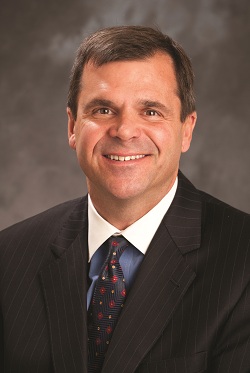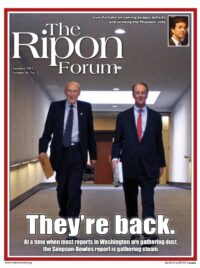
As Congress and the President debate ways to keep America from going over a fiscal cliff, it is critical nothing be done in the meantime that would force the American people closer to the edge.
Take the President’s recent proposal to let the current tax rates expire next year on franchise small business owners. This proposal, which is supported by many Democrats in Congress, will have dramatically negative ramifications on the ability of prospective and existing small business owners and investors to create jobs.
Entrepreneurs use the franchise business model to create one out of eight private sector jobs and 3.2 percent of U.S. Gross Domestic Product. Indeed, franchisees are proven job creators. They are men and women who take a tremendous amount of risk by using their life savings and taking out loans to start new business ventures, often times generating only a small amount of cash flow. Their personal sweat equity is honest and earned, and many franchise owners do not take a salary, but instead reinvest their profits to expand their enterprises, creating more new jobs by opening additional stores. Raising taxes will affect the bottom line and profits of franchise business owners.
It is becoming increasingly difficult for prospective investors to get into franchising or expand their operations. Why? While access to capital is slowly improving for existing business owners, our industry still faces limited access to capital for new business start-ups. Our businesses also face new health care regulations and the uncertainty of the “fiscal cliff” at the end of this year. As tax hikes loom, the proposal to extend the 2001/2003 tax cuts only to those with income below $200,000/$250,000 would make the business environment just that much more difficult for small business owners who are at the heart of this critically important debate.
As tax hikes loom, the proposal to extend the 2001/2003 tax cuts only to those with income below $200,000/$250,000 would make the business environment just that much more difficult for small business owners who are at the heart of this critically important debate.
Under this proposal, the taxes for many of IFA’s members would be dramatically increased on January 1, 2013. More than 80 percent of IFA’s members file their taxes as LLCs, partnerships, s-corporations or sole proprietorships. They do not pay the corporate income tax. Instead, they declare their business profits on the owner’s personal income tax return and are taxed at the personal income tax rate. It is very difficult to plan for the future when decisions on how to organize and grow the business are based, in part, on tax ramifications. The Joint Committee on Taxation recently estimated that 3.5 percent of individual taxpayers with business income would fall in the tax brackets that would rise under this proposal. This is where a significant amount of the job creation in the small business community is derived, as these are the most successful multi-unit, multi-concept franchisees, that are creating the majority of new jobs, and they create them faster than other types of business owners.
Franchising is a proven, structured and scalable business model and our members need certainty in the tax code, and soon. Tax hikes are looming. Franchisees and franchisors need to be able to plan for future growth.
We need comprehensive tax reform at both the corporate and individual levels.
We need comprehensive tax reform at both the corporate and individual levels. We have supported many initiatives of the current Administration, including making the largest private sector commitment to hiring veterans, military spouses and wounded warriors, and the Small Business Jobs Act of 2010.
However, the administration’s current proposals on taxes are misguided and will crush the small business community, greatly inhibiting growth in the franchise sector. We respectfully call on the President and Congress to begin a true bipartisan effort to have a thoughtful, comprehensive tax reform discussion that addresses both corporate and individual tax rates as soon as possible.
A full economic recovery in this country, supported by small businesses which create 65 percent of all net new jobs, depends on it. RF
___________________________________
Stephen J. Caldeira is the President & CEO of the International Franchise Association.




